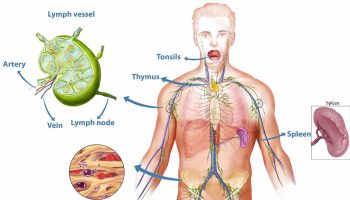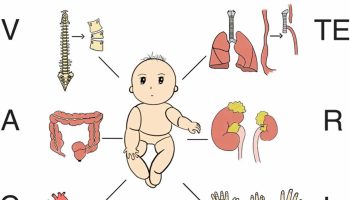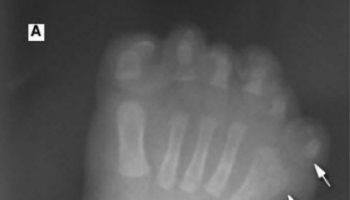What causes eye twitching
An eyelid twitch (myokymia or tic) is when you have a spasm or slight movement of your upper or lower eyelid, but only one eye at a time. An eyelid twitch (myokymia) movement does not affect your vision. These eyelid spasms happen without your control. The eyelid may repeatedly close (or nearly close) and reopen. Eyelid twitches are common, and often caused by stress, being tired and very rarely a sign of anything serious. Eye twitching often go away on their own, but see a doctor or ophthalmologist if a eye twitching lasts more than 2 weeks.
An eyelid twitch comes on suddenly, and can last for a minute, hours, days or even longer. While it may feel as if everyone can see the twitch, most eyelid twitches are slight enough that they can’t be seen by someone simply looking at your face.
Eye twitches are usually nothing to worry about.
Most people get eye twitches from time to time. Once the eyelid spasms begin, they may continue off and on for a few days. Then, they disappear. Most people have this type of eyelid twitch once in a while and find it very annoying. In most cases, you won’t even notice when the twitch has stopped.
Most common eyelid twitches are harmless, and do not affect your vision.
The most common things that make the muscle in your eyelid twitch are fatigue, stress, and caffeine.
Eye twitching are often linked to:
- Stress and anxiety
- Tiredness and exhaustion
- Eye Strain. Spending a lot of time in front of computer screens and continuous use of technology can lead to an eye twitch. You should schedule an eye exam as you may need to get an eye check up done, especially for those of you who wear glasses.
- Drinking caffeine or alcohol
- Some medicines – check the side effects on the packet or leaflet. Eye twitching may be a side effect of drugs, particularly medication used to treat epilepsy and psychosis.
- Physical exertion
- Allergies and Irritation.
- Irritation of the eye surface or inner eyelids.
- Foreign particles such as dust, smoke and chemicals can result in swelling, itching and watery eyes and all of those can make your eye twitch at times.
- Wind
Most eyelid twitches are minor and go away without treatment. You can often get rid of eyelid twitching by getting enough sleep, reducing stress, and limiting your caffeine.
Twitches can affect any part of the body. Twitches in the eyes or legs are particularly common. You may also have tingling or cramps (spasms) in the same area.
You may have more severe contractions, where the eyelid completely closes. These can be caused by irritation of the:
- Surface of the eye (cornea)
- Membranes lining the eyelids (conjunctiva)
Sometimes, the reason your eyelid is twitching cannot be found.
If your twitches seem to be getting worse, be sure to tell your doctor or ophthalmologist. Because there are some neurological problems that can make eyelid muscles contract, such as blepharospasm and hemifacial spasm. These less common conditions generally tend to cause the eyelids to close more fully and for longer periods of time, limiting or completely blocking your vision. Other muscles in the face may be affected as well. Benign essential blepharospasm is a movement disorder (dystonia) of the muscles around the eye. No one knows exactly what causes it. Benign essential blepharospasm starts out as increased blinking of both eyes and may progress to the eyelids being squeezed shut. This type of eye twitching is relatively uncommon but can be extremely severe, affecting all aspects of life. Hemifacial spasm involves twitches of muscles on one side of the face, including the eyelid. Hemifacial spasm is typically caused by a small artery that irritates a facial nerve.
Other conditions that sometimes include eyelid twitching as a sign include:
- Blepharitis (eyelid inflammation)
- Corneal abrasion (scratch)
- Dry eyes (decreased production of tears)
- Entropion (inwardly turned eyelid)
- Glaucoma (group of conditions that damage the optic nerve)
- Light sensitivity
- Trichiasis
- Uveitis (inflammation of the middle layer of the eye)
Very rarely, eye twitching may be a sign of certain brain and nervous system disorders. When it is, it’s almost always accompanied by other signs and symptoms. Brain and nervous system disorders that can cause eye twitching include:
- Bell’s palsy
- Cervical dystonia (spasmodic torticollis)
- Dystonia
- Multiple sclerosis (MS)
- Oromandibular dystonia and facial dystonia
- Tourette syndrome
And eye twitching is sometimes the earliest sign of a chronic movement disorder, especially if other facial spasms develop too.
How to stop eye twitching
For the majority of people, the common eyelid twitch is a brief and minor annoyance. But when it lasts longer or occurs more frequently than usual, there are some steps you can take to make it go away:
- Get plenty of sleep and rest. Eyelid twitches often happen to people when they are overly tired.
- Step back from stress and try to find ways to relax. Being under stress can lead to a twitch. If you can’t eliminate something causing you stress, find stress-reducing activities to help get rid of the twitch.
- Cut back on caffeine. As a stimulant, caffeine can cause eyelid spasms. Limiting your coffee, tea or soda intake may help to reduce eyelid twitching.
- Moisturize your eyes. In some cases, having irritated or dry eyes can lead to eyelid spasms. Lubricate your eyes with eye drops. Talk with your ophthalmologist if you have ongoing eyelid twitching and gritty, uncomfortable eyes.
- Try not to worry about it – an eye twitch is usually harmless, and worrying can make it worse.
- Do not drink lots of alcohol.
- Do not stop taking a prescribed medicine without getting medical advice, even if you think it could be causing your twitch.
- If eye twitching is severe or lasts a long time, small injections of botulinum toxin can control the spasms. A very slender needle is used to inject the medicine into eyelid muscles above and below your eye. Spasms begin to disappear anywhere from a day to 2 weeks after the botulinum toxin injection. This relief lasts about 4 months.
See a doctor if:
- you have an eye twitching for more than one to two weeks
- twitching completely closes your eyelid or you have difficulty opening the eye
- twitching involves other parts of your face
- you have redness, swelling, or a discharge from your eye
- your upper eyelid is drooping
- you have a twitching in other parts of your face or body as well
- the affected area feels weak
- you think a prescribed medicine might be causing your eye twitching
Most twitches aren’t caused by a medical condition.
Medical conditions that can cause a twitch.
But a twitch that doesn’t go away or occurs with other symptoms could be something like:
- Benign fasciculation syndrome – long-lasting twitches and cramps caused by overactive nerves
- Dystonia – a group of uncommon conditions that cause muscle spasms
- Motor neurone disease – a rare condition that causes weakness and gets worse over time





